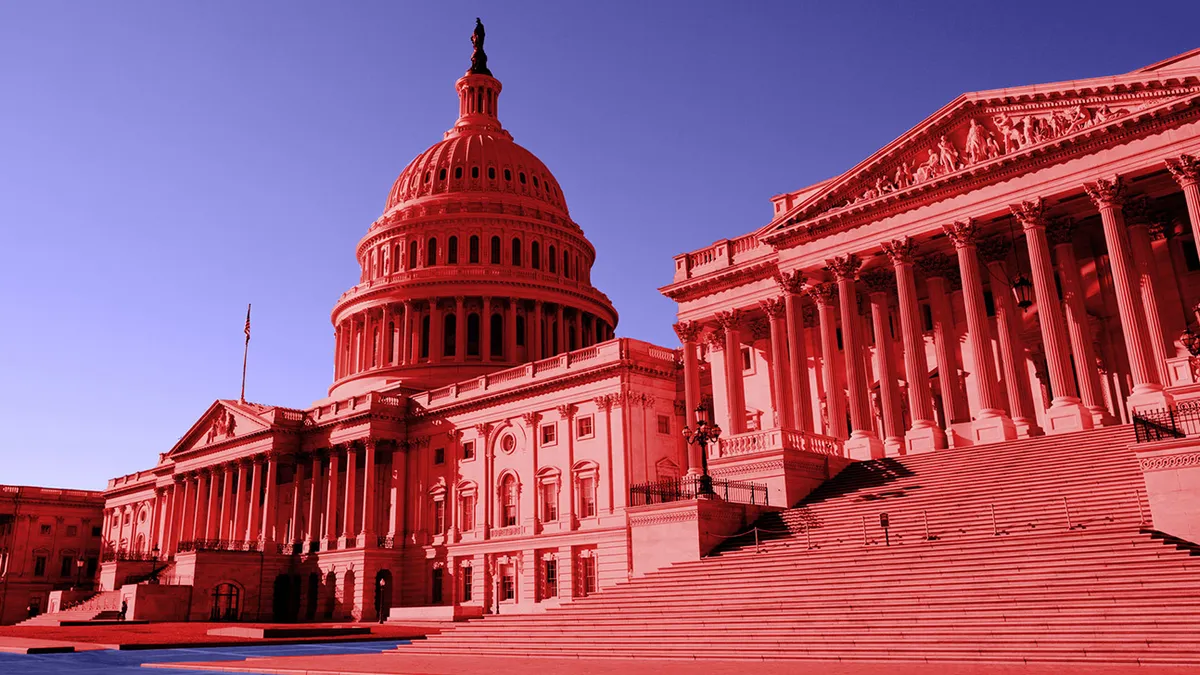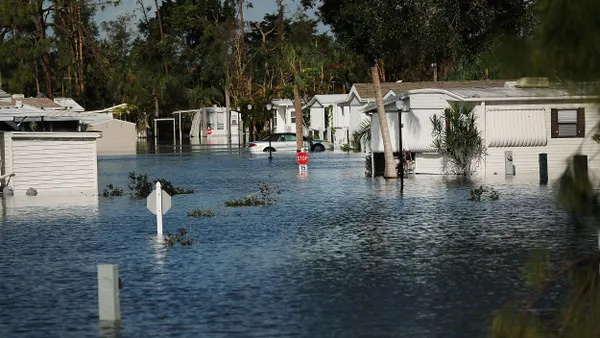Dive Brief:
-
The U.S. House of Representatives subcommittee on Europe, Eurasia, Energy, and Environment is planning to host a hearing the week of Sept. 21, Climate Week, to examine international efforts to bring climate and clean energy planning into COVID-19 recovery efforts, according to a House staffer.
-
A spokesperson for Rep. Bill Keating, D-MA, who chairs the subcommittee, confirmed the hearing would likely take place on Sept. 23, though that date is not yet solidified. "Part of the message there is that the U.S. is diverging from many other countries in that it's not looking at climate as part of the COVID relief efforts," said the House staffer.
- Also during Climate Week, a summit organized by the Climate Group in New York City, the House is planning to bring to the floor a companion legislative package to the Senate's bipartisan Energy Innovation Act, House Majority Leader Steny Hoyer, D-Md., confirmed in an Aug. 31 floor schedule notice.
Dive Insight:
While the U.S. has yet to include green infrastructure and clean energy in any of its COVID-19 recovery packages, countries across Europe and elsewhere were comparatively quick to tie climate policy into their economic recovery plans.
"What's interesting about the EU situation is they already had a plan," said Jennifer Huang, senior international fellow at the Center for Climate and Energy Solutions.
In July, the EU finalized a climate recovery plan that spends 30% of the EU's budget, or 550 billion euros, to support green projects over the next seven years. Individual countries have also been dedicating large portions of their economic stimulus budgets to a green recovery — France is spending one-third of its stimulus money on energy efficiency, green hydrogen and electrification, while Germany plans to spend about 41 billion euros on electric vehicles, renewable energy and public transport.
French Minister of the Economy and Finance Bruno Le Maire specifically called out the country's reliance on China for EV batteries and other minerals, saying the country was just as capable of making its own products. U.S. reliance on Chinese manufacturing of EV batteries as well as solar panels is of particular interest to the subcommittee, said the House staffer, and will likely be a focus of the hearing.
Thus far, U.S efforts around aligning clean energy policy with recovery efforts have been suspended, but some in the Senate have indicated that change may be coming. A coalition of Senate Republicans in July urged Senate Majority Leader Mitch McConnell, R-Ky., to include clean energy efforts in the next stimulus package, and Sen. Lisa Murkowski, R-Alaska, has indicated she hopes to see the Energy Innovation Act hit the Senate floor again this year, after it stalled in March.
The House's companion legislation is expected to include a number of bipartisan bills from the House Committee on Science, Space and Technology, including bills that would invest in research and development for battery storage, wind, solar, nuclear, geothermal, and carbon mitigation efforts for fossil fuels, including carbon capture. It also will include bills that direct research and development toward grid modernization, grid security and the critical materials supply chain.
Another 6-10 bills will be included from the House Energy and Commerce Committee, the House staffer confirmed, though the exact bills are still being determined. In total, the package would comprise 19-23 bills targeting carbon reduction efforts.
The House in July passed the Moving Forward Act, a Democrat-led bill that includes federal tax incentives for solar, storage, offshore wind and electric vehicles, alongside other green infrastructure policies.













